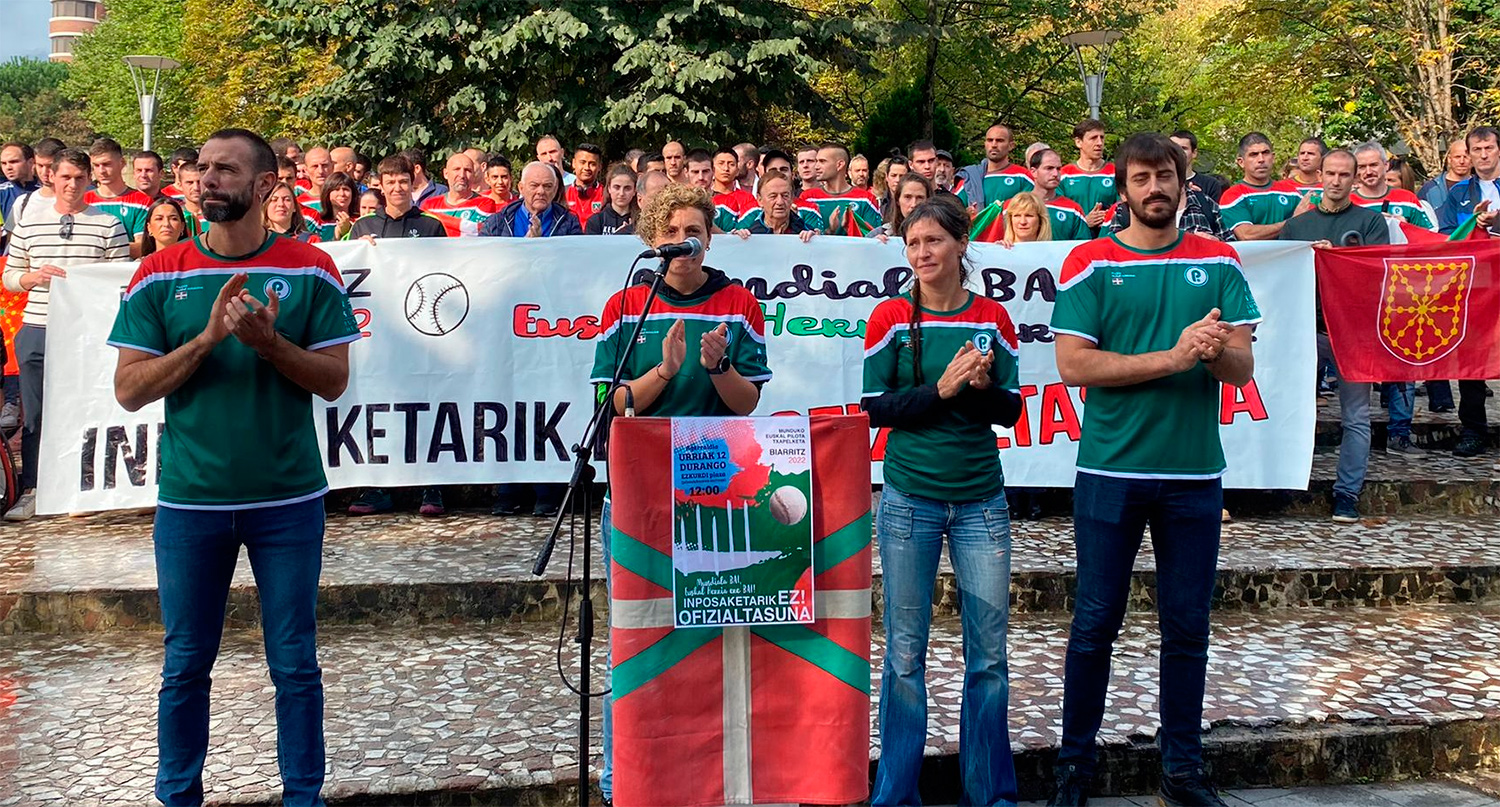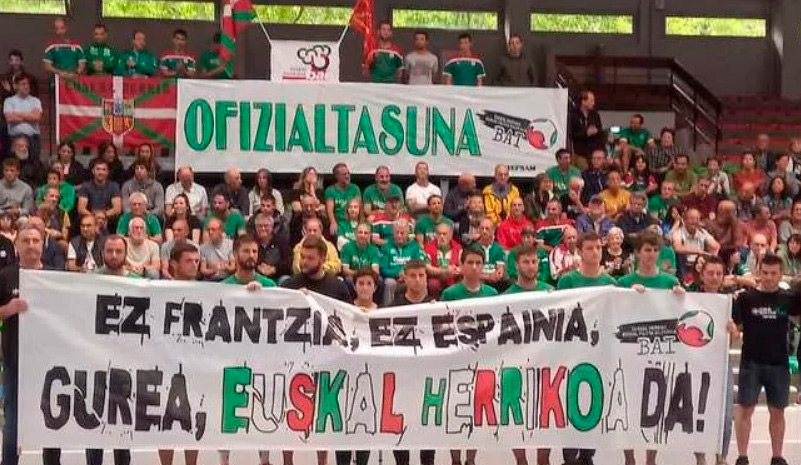"In female hand ball, what hasn't been done in 30 years has been done in three years."
- You have already seen Pilota girls (Mrs. Polaroiska, 2012) short? It perfectly sums up Patri Espinar's path in the world of the ball: a whole obstacle, a whole problem. However, in recent years it has received recognition of many years of effort: the two txapelas of the world and the warmth of their countrymen.
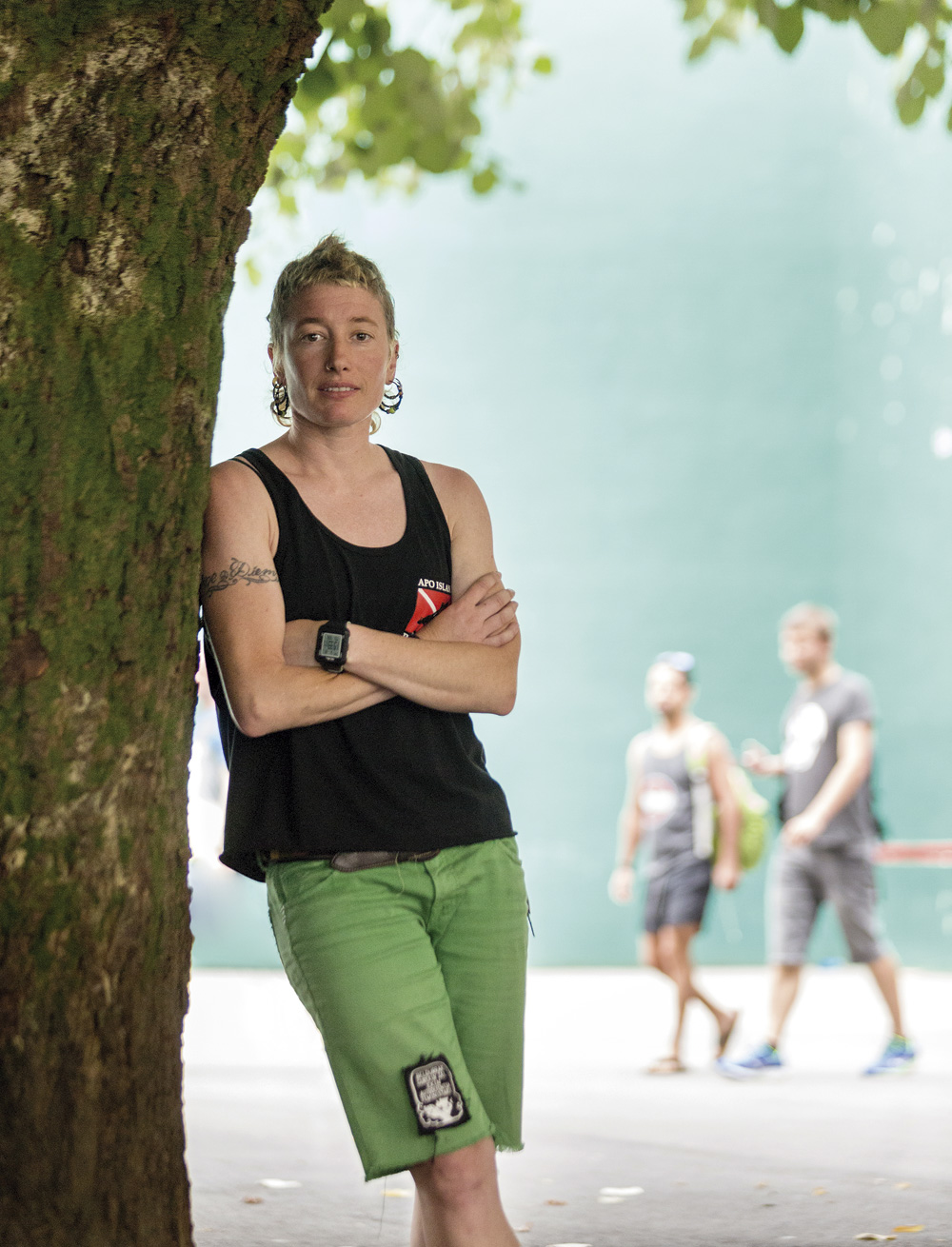
Kirolaria. Hura du pasio eta bizibide. Gaur egun esku-pilotan dabil, baina lehenago futbolean eta palan ere lehiatu da. Iaz, Kolonbian, one wall pilota jokoaren munduko txapelketa irabazi zuen banakakoan eta binakakoan (Amaia Araiztegirekin batera). Aurten, berriz, Galdakaoko II. Berdintasun Saria jaso du, kirolaren arloan berdintasunaren alde egindako lanagatik.
Pelotari, athlete… What do you think?
Lately there are a lot of people who tell me pelotari, but I consider myself an athlete because I have always been in the world of sport. I have competed in football and ball (shovel and hand), but I move on the mountain, in piragua, in skiing… I do a lot of sport.
When and with what did it start?
I started playing room football when I was 6 years old, in Usansolo, with guys. I also did an essay with the ball, at the age of 8, but I stopped it immediately after I tried it. I kept playing in room football with kids, and then I started playing handball with 9-10 years old, alternating both. I started playing soccer with girls ages 14 to 15 and with 17 I left the ball by hand.
Because yes?
No, I left it with a terrible sorrow. The sport I love most is the ball by hand and it was. I left it because I couldn't keep going. I was with boys, and even cadets I was very good, but I started to notice a big difference in cadets and in juveniles it was already unbearable. How nothing was done for the girls and I was the only girl at that time… I left it with the punishment of Christ and kept playing.
Why do you love the ball so much?
I like what the game gives me. Shaking the ball gives me great pleasure, and it also serves me to unravel all my tensions and anger. I like a lot how you get so much in the game, how you win the games, it unites me a lot: you have to displace your rivals, send them away, and then create a space to finish so much. Every time it's a challenge, every game is a challenge, you play very different games every game and every time, who you play, how you are… That brings me together.
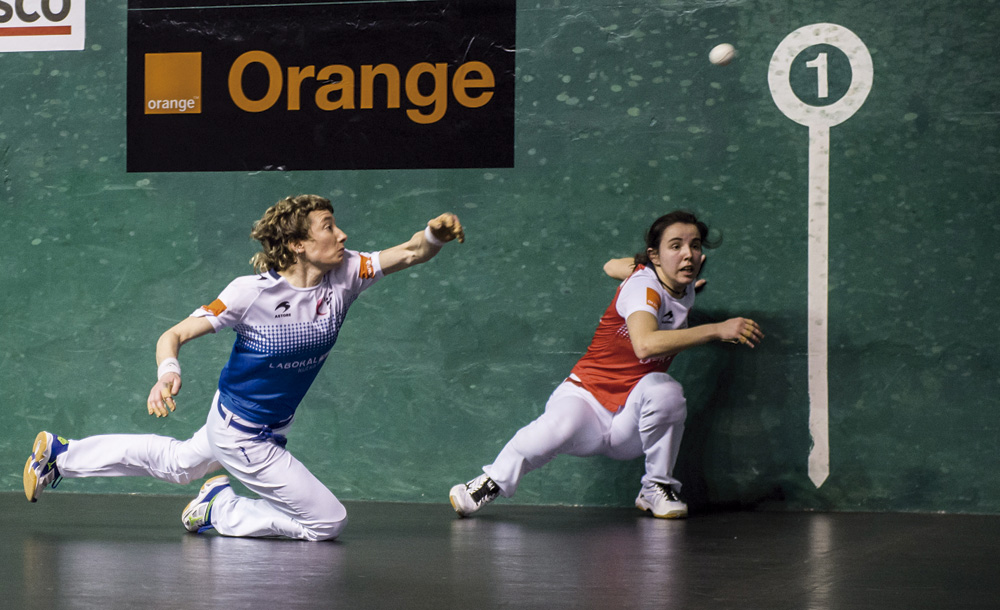
When did you go back to the ball?
I left my hand when I was 17 and when I was 19-20, I started with the shovel. He walked in a shovel for 6-7 years.
Are there more chances for women to play shovel?
Yes. The girls we were walking by hand had to leave it sooner or later, because there was no competition for girls, and if you're with boys there comes a time when you can't compete, you can't. And they drive you to the shovel, because there are paddle competitions in both ratchet and pediment. In the last three years, though, I've walked hand in hand.
Has the situation changed?
In the last three years, it has changed a lot, it's amazing, and that is that one person and one federation took care of pushing the ball by female hand. The Federation of Biscay and Iker Amarika, organiser of the Emakume Master Cup, started to drive in Bizkaia, and in Larrabetzu a women's handball club was created, the first in the txoko. That's where it all started. Since Iker Amarika created the Emakume Master Cup and we started out on TV, it's been a boom. In three years we have done what we have not done in 30 years, which has not been done in favour of the female hand ball throughout history. They're over 120 pelotaris, more and more coming, more and more schoolgirls, and if we keep going like that, it's going to be great. In three years, much progress has been made.
In addition to practicing sports, he studied sports: he studied physical education. What has that brought to him as an athlete?
The psychology of sport brought me a lot. When I was younger, I didn't have my head so well stabilized, I didn't control my rabias very well and a lot of things inside of me, I didn't channel all that energy well, and through the psychology of sport, I learned to channel or transform all that in another way, and even to have greater mental control. That has helped me a lot in the world of sport. Today, when I get a lot of anger or I'm not playing well, I try to turn it around and change it, and I've learned that from experience, but also from sports psychology techniques.
When did you have to keep your head cool?
Last year I was in Colombia at the one-wall world championship. For me it was a new way of acting, I do not, and before going to the world championship I was in Valencia with the selections of the Basque Country and the Basque Country, and there I was taught how to play in Europe and in America, because we played the Basque and it is very different. Of all the sites that gave me firewood in Valencia, I lost all the matches, and instead, when I went to the world championship, after going through injuries and very complicated moments, I took all the pressure off. As soon as I got there, in the first match, I torched my ankle, but I didn't care, I kept playing. I won those who gave me firewood in Valencia: it seems to me that they were weaker in their heads, although they were better technically and they knew the sport better. I'm sure I won not by the technique, but by the head. Every time I was going to do as much as I could and give it everything, and that makes you win.
What is one wall?
It's a ball game. It comes from Ireland and is very widespread in Europe and America. It has nothing to do with the Basque ball, everything is different: facilities, the ball itself, the way to do so many, the way to hit, to put your legs, the movement of your hand, how you take the space…
Was Colombia the first championship in the world?
From ball to hand, not paddle. I was in Palan in Chile in 2005. For a pelotari the world championship, the largest, is large, as the Basque ball is still not included in the Olympic Games as an official sport. The experience of 2005 was immense, the best that an athlete wants to live. But, yes, we were four Basque pelotaris with the selection of Spain.
The Basque team first called me two years ago and last year I was called to go to the world championship. I didn't expect it. In addition, I was about to leave the sport for a back injury, and when I got that opportunity, it was something vital, now or never, and I wanted to take full advantage of it. I've had very few occasions to play handball, and I'm a woman in the plaza, I like to play in front of people, I like to teach. They may not have called me again, and I thought: now I must prove what I have not been able to prove so far. I did.
You mentioned the back injury.
Yeah, I still have it. It was the first big blow at the age of 20-21, I got the first disc hernia, and I went through very hard times. Everything comes from a motorcycle accident, a motorcycle hit me, broke my foot and apparently caused me a back injury. And two years ago, I was climbing a great krak. I knew I had something serious. Today I get my hands asleep every day, I have dizziness, dizziness… It is very hard as a woman athlete, because nobody knows us, go to the insurer, because that is why we have insurance and not have done a test. There you want to cry, to leave the sport: What am I doing here for the ball, then I have an injury, I pay my insurance and I don't get a test! Finally, the family doctor resonated with me, I thank him for a lot of things, and when he saw the results he was amazed that he was an old man, not a young man. The injured patient had nine vertebrae. I spent 6-7 months in a private sports center, paying for money, reinforcing my back and playing pitch, and it seems like I turned around, and for the moment I keep playing the ball, but I always have to control my body and what I do.
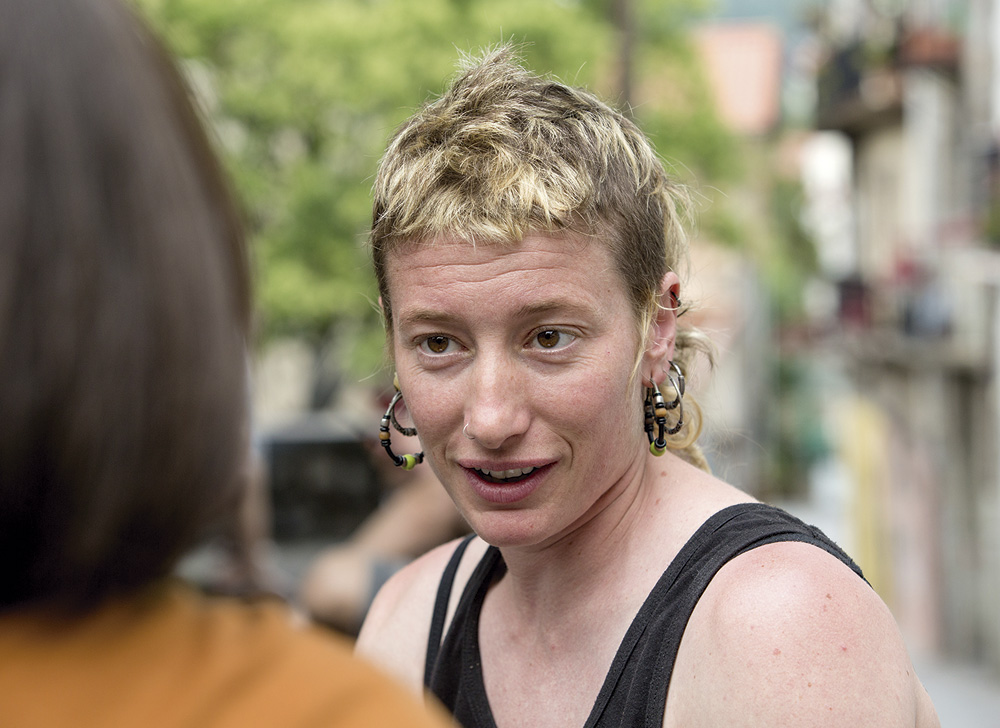
In view of the situation of women athletes, what are the most urgent needs?
A number of things have to be distinguished. On the one hand there are team sports: football, basketball, handball… These sports are structured, have coaches, club managers, clubs, championships all year round… In the case of hand ball, school sport is yes, but federated sport is still not well structured. We are doing it step by step, and I miss this structure: a trainer, a physical trainer, training schedules, three weekly, physical and technical training… We don’t have it in the women’s ball, and I want to, I want to train three times a week, with a trainer, with a trainer, and compete every weekend, in the province, in the Basque Country and outside the Basque Country. That is what is missing. We could say that hand ball is a minority sport and there is a very big difference between minority and major sports. In major sports, however, there is a great difference between women and men: in economic resources, in materials, in the impact on the media…
What measures should be taken in this regard?
Policies of recent years: more media coverage, creating and structuring women's clubs... And starting with the quarry, starting at a young age. They're doing a good job. In these twenty years everything has changed a great deal, and I believe that this is the way forward. And then institutions have to support women's sport. Today everything is being regulated, for example, in order to receive subsidies, women’s sport must be promoted, and these kinds of policies are of great help to girls, otherwise we would continue as usual. We are on the right track, even if it goes very slowly.
He is a member of the EMAK group. What is EMAs? How did it come about?
EMAs were created around the years 2011-2012. The Equality Area of the City of Donostia-San Sebastian developed a diagnosis of the situation of women's sport in Donostia-San Sebastián in all areas: school sport, leisure, federated and high level. I participated as an athlete. Ainhoa Azurmendi, a member of the Avento Sports Advisory, was the driving force and we thought about creating a group and continuing to drive women’s sport. We gather five or six women, athletes or not, and we start organizing activities: mountain departures, canoeing exits, cinema forums… Today we are still in progress, but with another strategy: we talk to sports federations so that these federations promote women’s sport separately. For example, this is how the Pirate Woman and Pirate Woman projects have emerged, which have been very successful. The surfer woman is a woman who is surfing with a hundred and women, in the piragua there are many other…
It appears in the short Pilota Girls. Can you tell me what Pilota Girls is?
Mrs. The Polaroiska group did this, they are two women from Bilbao: María Ibarretxe and Alaitz Arenzana, two excerpts of artists. They called me in 2012, they wanted to make a video and have a pelotari woman as the protagonist, because they did a great job about the ball for the Ethnographic Museum and they realized that there were no pelotaris women, and then they got in touch with me through a friend.
What is in it?
It's a five-minute video clip. It seems that we are parcour, and not playing ball, because we do not play in the pediment, the man is not the protagonist… A girl is the protagonist, and instead of playing in the pediment is in the city of Bilbao, in the Gran Vía, in the banks, in the shops, in the buses… The video wants to break stereotypes and the message is that I play ball over all things, above because I like them, and over the limits. And that's what I've lived my whole life in the world of the ball -- it's all border. I want to play ball, they don't give me shelter at home, I don't care; I'm a girl, I don't care; there's no female competition, I don't care: I want to play ball. And I'll keep playing ball.
Munduko txapelketa irabazteak gauza handia dirudi, eta bada, baina, agurtu aurretik, gauzak bere neurrira ekarri nahi izan ditu Espinarrek: “Ez dut inongo diru-laguntzarik jaso txapelketa irabazteagatik, beste nazioek, ordea, ematen dituzte. Bestalde, ez didate Basque Team-eko beka eman. Kirol klub bat sortu nuen emakumeen euskal pilota eta mendizaletasuna bultzatzeko: ez didate diru-laguntzarik eman horretarako, ez eta nire kirol merituengatik ere. Guztira lau diru-laguntza eskatu ditut (kluba hauspotzeko eta niretzako, one wall-en jokatzen segitu ahal izateko) eta ezetz esan didate guztietan. Hau da gure errealitatea”.
Irungo Landetxa auzoko pala txapelketa mistoan, hogei bikotetik bakarra da emakumeek osatua, 40 lagunetik bi baino ez dira emakumeak: Idoia Karrera eta Loiola Zuazu. Lehiaz, txapelketa misto eta ez mistoen arteko aldeez eta joko-mailaz mintzatu gara haiekin. "Emakumeok... [+]
Lehengai anitzekin papera egitea dute urteroko erronka Tolosako Lanbide Heziketako Ikastetxe Integratuko kimika industrialeko ikasleek: platano azalekin, orburuekin, lastoarekin, iratzearekin nahiz bakero zaharrekin egin dituzte probak azken urteotan. Aurtengoan, pilota... [+]
The achievement of the Euskadi Selection has undoubtedly been a historic achievement. But if you stick to that, for many Basques – I too, because I am Navarro – it will be the darkest and saddest day. After enjoying the joy and warmth of the first few days, let's go back to... [+]
After so many years of struggle for it, 34 years, precisely, we are very pleased with the decision taken a few days ago, on 28 December, Innocent Day, in Pamplona, at the assembly organized by the International Federation of Basque Ball. Well, from now on we will have the... [+]
I had bought it for some time and read it above, but I have only recently been able to attend with the attention I wanted to the book Joxemari Iriondo Pilota eta Bertsoak. I have found old acquaintances and I have been raised with some of the struggles, lost and winnings that... [+]









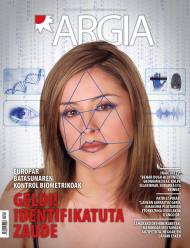


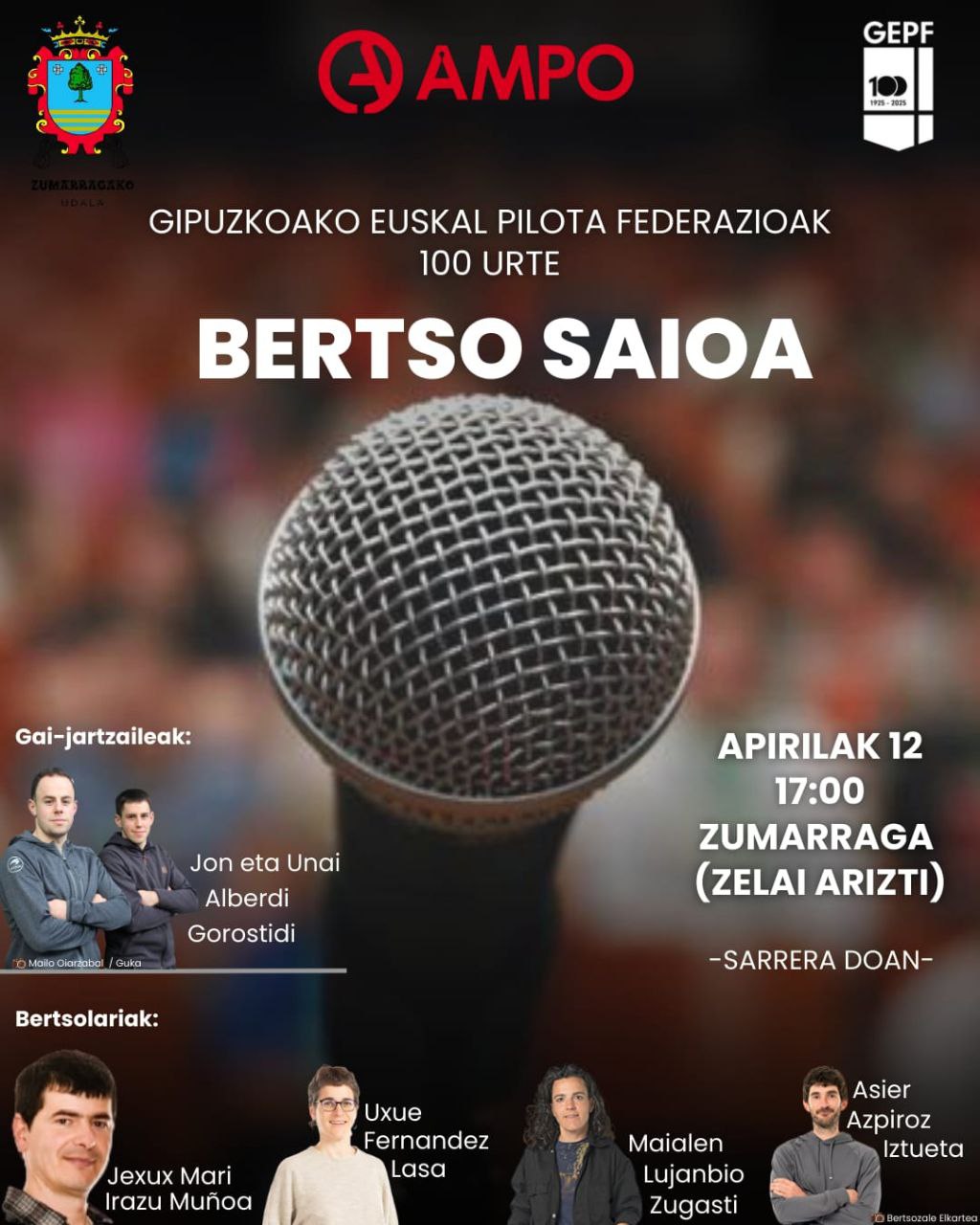

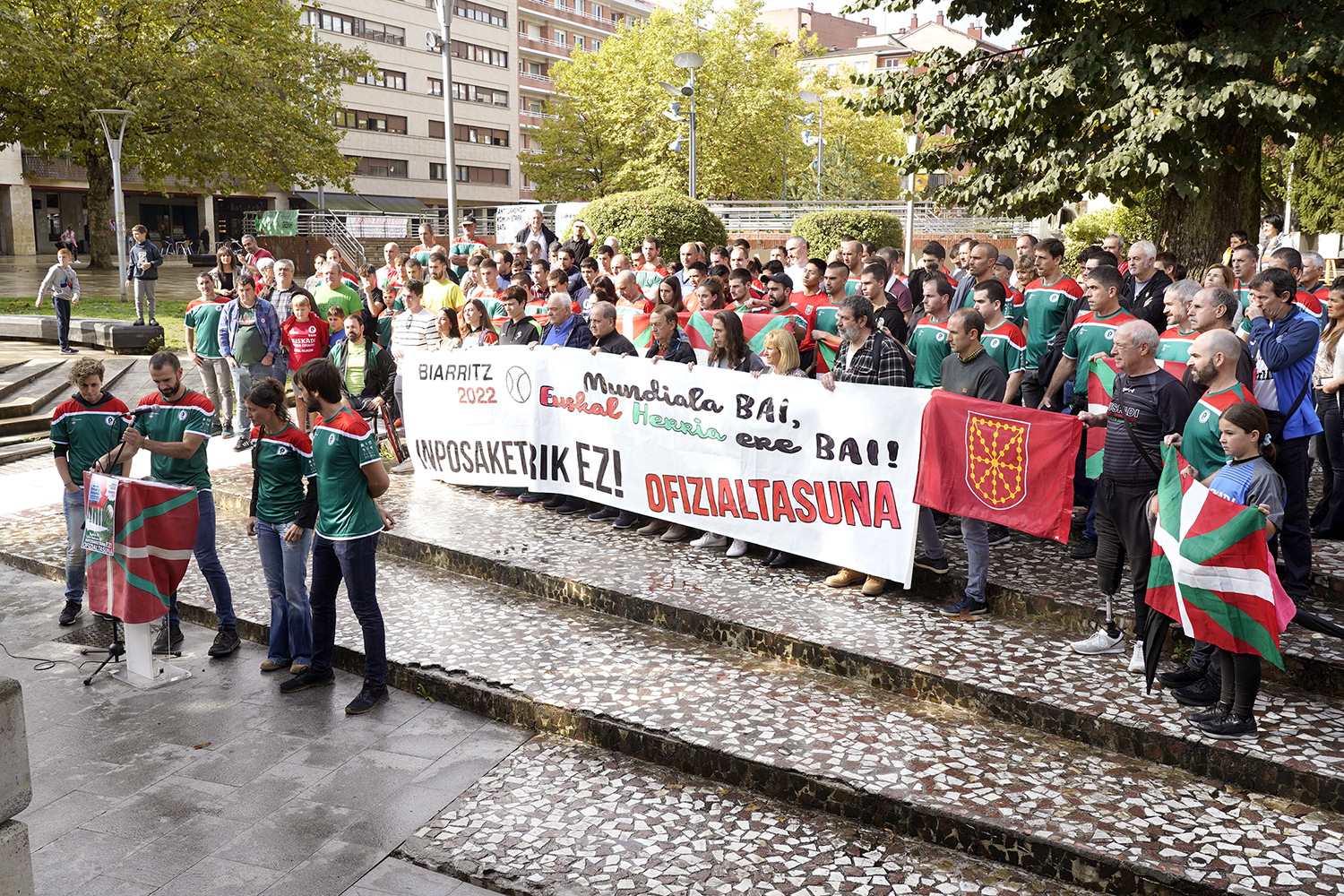
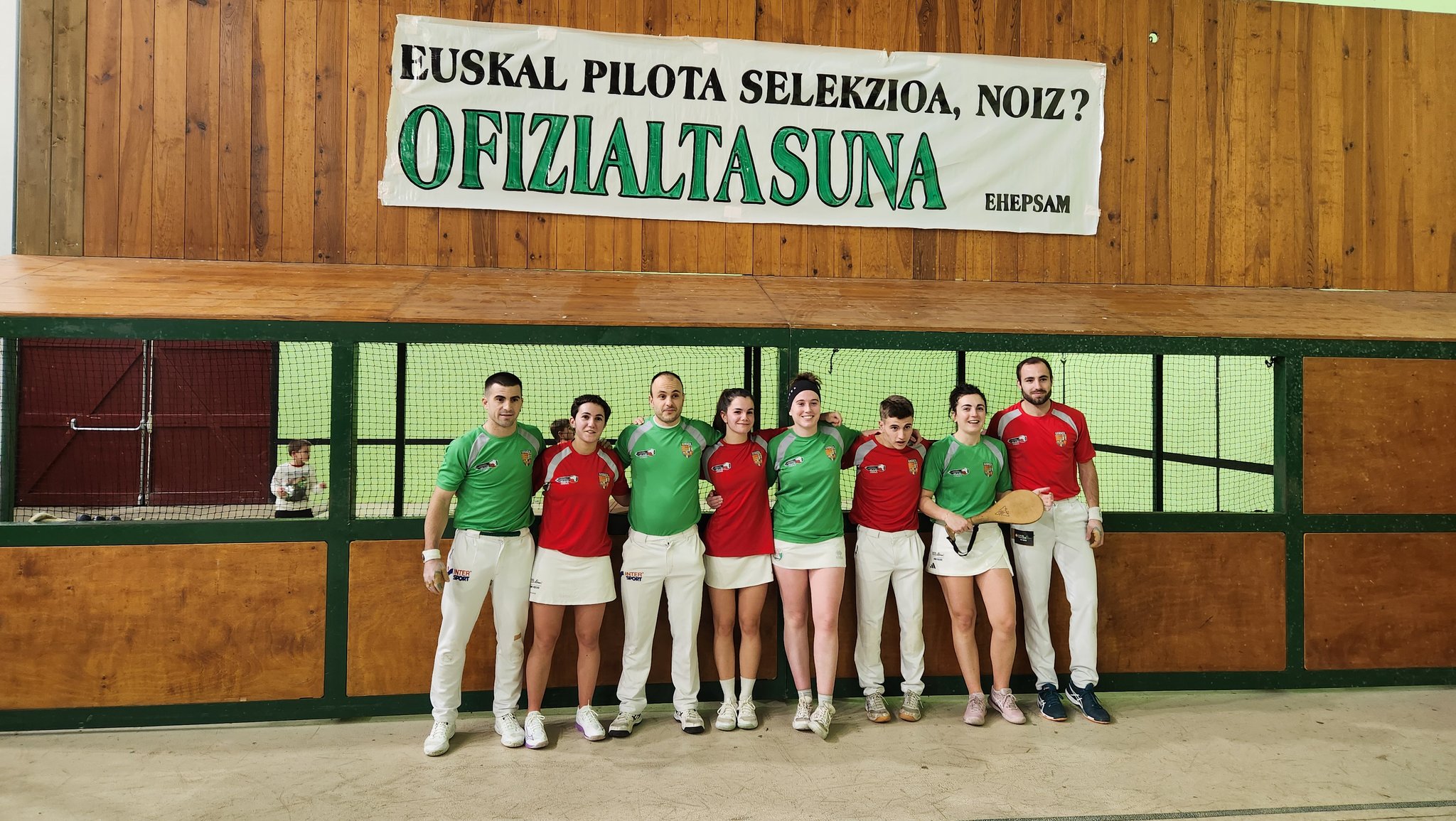
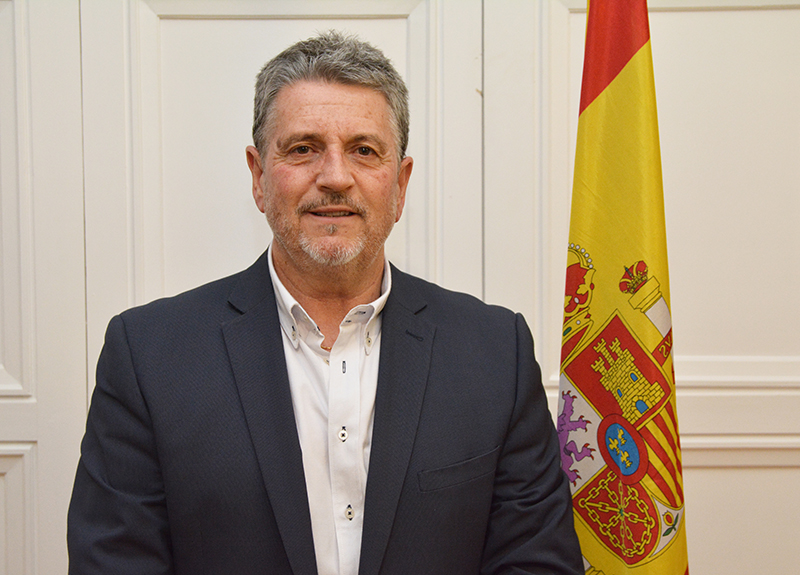
.jpg)
